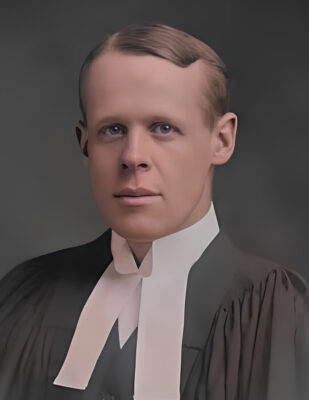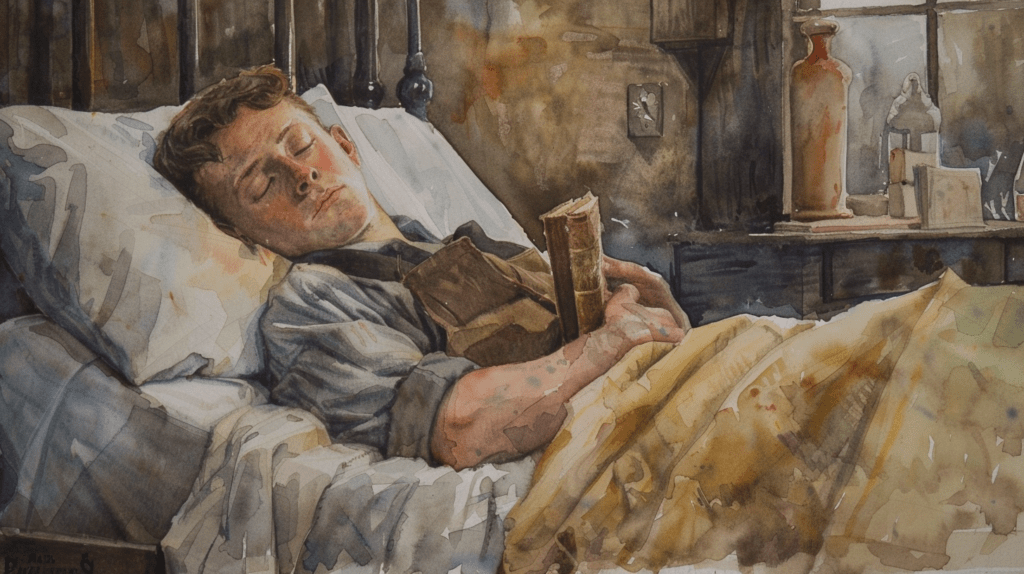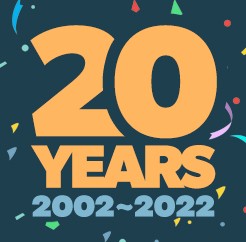The Story Behind: Revive Us Again
We praise Thee O God
For the Son of Thy love
For Jesus Who died
And is now gone above
In the annals of hymnody, few stories are as compelling and transformative as that of “Revive Us Again” and its author, Dr. William MacKay. A Scottish physician turned Presbyterian minister, his journey from a life of drift and despair to one of faith and fervor encapsulates the power of divine intervention and the timeless call for spiritual renewal.
The Early Years of William MacKay

Born in 1839, William Paton MacKay was raised in a spiritual environment by his devoutly Christian mother. Despite this foundation, his transition to the University of Edinburgh to study medicine marked the beginning of a departure from the principles he was raised on. The pressures and temptations of academic life may have led him down a path of heavy drinking and moral decline, to the point where he even pawned the very Bible his mother had given him as a keepsake and spiritual guide.
A Turning Point
We praise Thee O God
For Thy Spirit of light
Who hath shown us our Savior
And scattered our night
MacKay’s professional life as a doctor brought him face-to-face with human suffering and the stark differences between those who had faith in Jesus Christ and those who did not. Despite recognizing these differences, MacKay continued on a path that he feared would lead him to become a “thorough infidel.” However, the course of his life was irrevocably altered by an encounter with a young mason’s helper who was brought into the emergency room with life-threatening injuries. Here is his testimony in his own words:
My dear mother… had been a godly, pious woman, quite often telling me of the Savior, and many times I had been a witness to her wrestling in prayer for my soul’s salvation. But nothing had made a deep impression on me. The older I grew the more wicked I became….
One day a seriously injured (laborer)… was brought into the hospital. The case was hopeless…. He seemed to realize his condition, for he was fully conscious, and asked me how long he would last…. I gave him my opinion in as cautious a manner as I could….
“Have you any relatives whom we could notify?” I continued. The patient shook his head…. His only wish was to see his landlady, because he owed her a small sum, and also wished to bid her farewell. He also requested his landlady send him, “The Book….”
I went to see him on my regular visits at least once a day. What struck me most was the quiet, almost happy expression constantly on his face…. After the man died, some things about the deceased’s affairs were to be attended to in my presence.
“What shall we do with this?” asked the nurse, holding up a book in her hand. “What kind of book is it?” I asked. “The Bible of the poor man…. As long as he was able to read it, he did so, and when he was unable to do so anymore, he kept it under his bed cover.”
I took the Bible and—could I trust my eyes? It was my own Bible! The Bible which my mother had given me when I left my parents’ home, and which later, when short of money, I sold for a small amount. My name was still in it, written in my mother’s hand….
With a deep sense of shame I looked upon… the precious Book. It had given comfort and refreshing to the unfortunate man in his last hours. It had been a guide to him into eternal life, so that he had been enabled to die in peace and happiness. And this Book, the last gift of my mother, I had actually sold for a ridiculous price….
Be it sufficient to say that the regained possession of my Bible was the cause of my conversion.

The Inspiration Behind “Revive Us Again”
Inspired by his renewed faith and the miraculous return of his Bible, MacKay wrote “Revive Us Again” capturing the heart of spiritual renewal. The hymn mirrors his own story and the wider revival spreading across Scotland during that period. It became a passionate cry for God’s restoration, with the chorus “Hallelujah! Thine the glory” expressing thankfulness and praise for God’s saving power.
The Hymn’s Journey and Musical Composition
“Revive Us Again” was first published unattributed in William Reid’s “Praise of Jesus” in 1863. It was set to music by MacKay himself, contrary to the common misconception that it was composed by John J. Husband (1760-1825), an English composer who had died long before the tune’s emergence in the 1860s. Mackay’s text and tune were later included in William Reid’s “The Praise-Book” (London: James Nisbet, 1866), which clearly credited Mackay for providing tunes to his own texts. The tune named HALLELUJAH, characterized by its simple harmonic structure and the irregular meter of its text, was perfectly suited to the revival and gospel movements of the era.
Legacy and Impact
The hymn found a welcoming audience in America, where it was embraced by the likes of Dwight L. Moody and Ira Sankey, further popularized in their evangelistic campaigns. “Revive Us Again” resonated deeply with American congregations, its message of renewal and praise echoing through revival meetings and churches across the nation. The hymn’s adoption by Billy Graham’s crusades in the mid-20th century solidified its place in the repertoire of beloved Christian hymns, often performed with the congregation divided in antiphonal praise, a practice that added to its powerful appeal.
Theological Reflections and Modern Relevance
At its core, “Revive Us Again” is a testament to the enduring need for personal and communal revival in the Christian life. Based on Habakkuk 3:2, the hymn marries awe at the Lord’s mighty deeds with a heartfelt plea for spiritual renewal. MacKay’s hymn remains a poignant reminder of the power of faith and the continual need for God’s grace in our lives.
Revival Through Song: the Legacy of William MacKay
We praise thee O God
For the joy thou hast giv’n
To thy saints in communion
These foretastes of heav’n
The story of William MacKay and “Revive Us Again” is more than just a piece of hymnological history; it is a narrative of redemption, a demonstration of the transformative power of God’s word, and a call to revival that transcends time and circumstance. His life and the hymn he contributed to the Christian faith encourage us all to seek a deeper, more vibrant relationship with God, to be revived again by His divine grace. In the echoing refrains of the hymn we find a collective prayer for renewal, a hymn that continues to inspire and uplift the hearts of believers around the world, beckoning us closer to the heart of God.
Frequently Asked Questions:
Q: What does revive us again mean?
A: “Revive Us Again” is a call for spiritual renewal and a plea for God to reawaken the faith and joy of His people.
Q: What does the Bible say about revive us again?
A: The Bible speaks of revival in terms of God restoring life and vitality to His people, as seen in passages like Psalm 85:6, “Will you not revive us again, that your people may rejoice in you?” This verse also inspires the hymn “Revive Us Again” by appealing for the Lord’s renewal and rejoicing in His love and mercy.
Revive Us Again Lyrics Video
Download sheet music, chord charts, tracks and multitracks for Revive Us Again exclusively here at Hymncharts.com and Worshiphymns.com. You won’t find this arrangement on any other websites.


